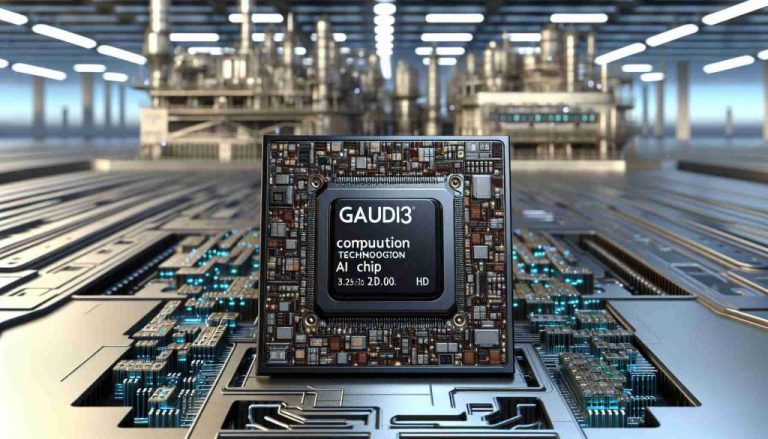
Intel Corporation made a significant stride in the competitive artificial intelligence (AI) market on Thursday with the unveiling of its latest computer chips, including the Gaudi3 — an AI chip designed for generative AI software.
The move is seen as a direct challenge to Nvidia and AMD, the current leaders in the market for chips powering large and power-hungry AI models.
Gaudi3, set to launch next year, is expected to compete directly with Nvidia’s H100 and AMD’s upcoming MI300X. The announcement comes as part of Intel’s broader strategy to diversify its offerings and attract AI companies away from Nvidia’s dominant position. Intel shares responded positively, rising by 1% on Thursday.
Register for Tekedia Mini-MBA edition 19 (Feb 9 – May 2, 2026): big discounts for early bird.
Tekedia AI in Business Masterclass opens registrations.
Join Tekedia Capital Syndicate and co-invest in great global startups.
Register for Tekedia AI Lab: From Technical Design to Deployment (next edition begins Jan 24 2026).
Intel CEO Pat Gelsinger expressed enthusiasm for the potential of generative AI, stating, “We’ve been seeing the excitement with generative AI, the star of the show for 2023. We think the AI PC will be the star of the show for the upcoming year.”
Gaudi3, developed in 2019 following Intel’s acquisition of chip developer Habana Labs, aims to position itself as a formidable contender in the AI chip market.
However, the competition is expected to be fierce, as Nvidia’s GPUs currently power prominent AI models like OpenAI’s ChatGPT. Nvidia’s stock has surged nearly 230% year-to-date, highlighting its stronghold in the industry. In contrast, Intel shares have seen a more modest rise of 68%.
To complement its foray into AI, Intel also introduced Core Ultra chips and new fifth-generation Xeon server chips. Both include a specialized AI component called a Neural Processing Unit (NPU) to enhance the performance of AI programs.
The Core Ultra chips, designed for Windows laptops and PCs, leverage a 7-nanometer manufacturing process for increased power efficiency and improved gaming capabilities.
Gelsinger’s strategic vision includes catching up to Taiwan Semiconductor Manufacturing Co. (TSMC) in chip manufacturing prowess by 2026, and the 7-nanometer Core Ultra chips reflect progress in that direction. The new chips also promise to run programs like Adobe Premier more than 40% faster, showcasing their versatility beyond AI applications.
Additionally, Intel’s fifth-generation Xeon processors, commonly used in servers deployed by large organizations and cloud companies, were highlighted for their prowess in inferencing—the less power-hungry phase of deploying AI models. Although pricing details for the new Xeon processors were not disclosed, the previous iterations were known to cost thousands of dollars.
Intel’s latest product announcements signal a broader industry trend, with traditional processor manufacturers like AMD and Qualcomm also aligning their product lines with the growing demand for AI capabilities.
The tech industry anticipates a new phase of AI-powered growth, and Intel’s strategic entry positions itself for engaging competition in the realm of artificial intelligence hardware. The unveiling of Gaudi3 is seen as a giant leap by Intel that is poised to reshape the market’s dynamics in the coming years.



